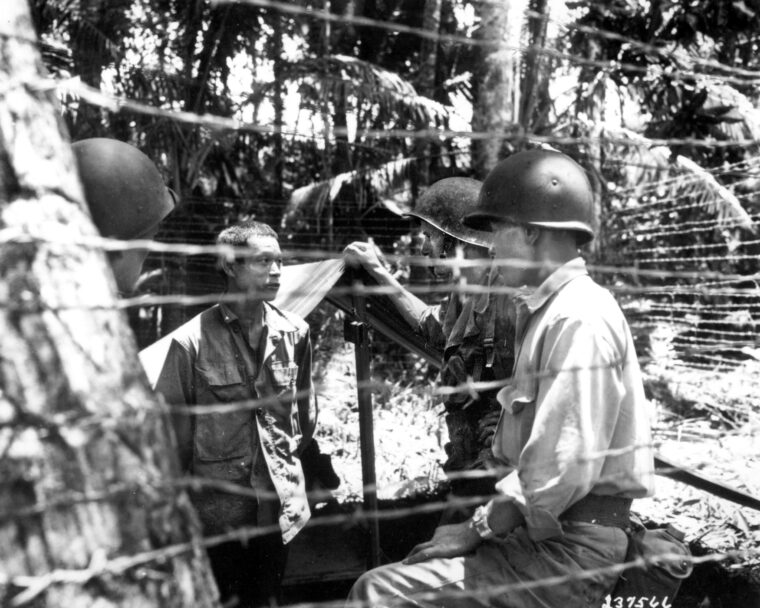
New Guinea Campaign
Speaking the Enemy’s Language
By Dr. Carl H. MarcouxAmerican soldiers of Japanese ancestry made remarkable contributions to the Allied victory during World War II. Read more

New Guinea Campaign
American soldiers of Japanese ancestry made remarkable contributions to the Allied victory during World War II. Read more
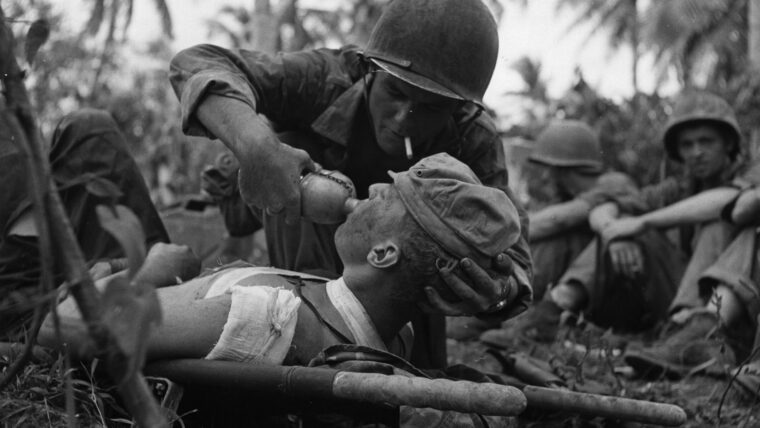
New Guinea Campaign
For centuries wounded soldiers of every nation were responsible for much of their own care. Medical attention was primitive and often not a high priority for military planners beyond the officer corps. Read more
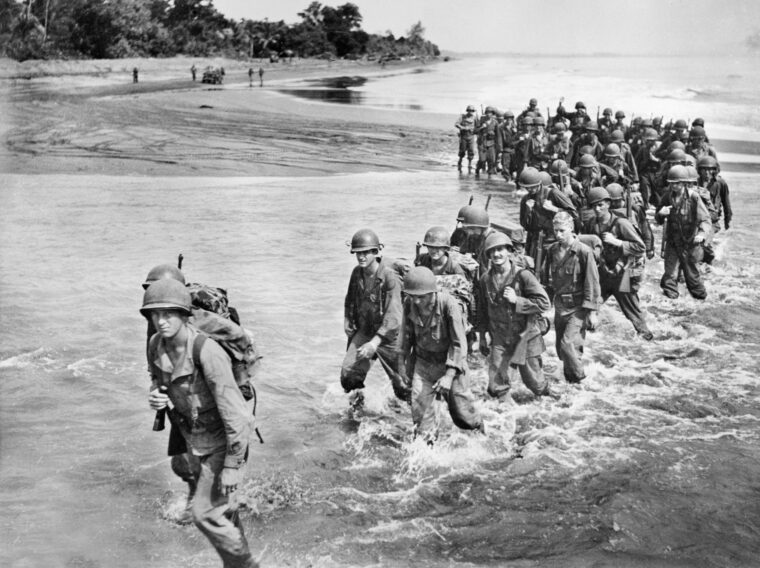
New Guinea Campaign
Under a midnight moon, hundreds of soldiers crept forward into position along the riverbank. Fields of tall reeds helped conceal them from observation but could not muffle the sounds of weary men slipping in the mud. Read more
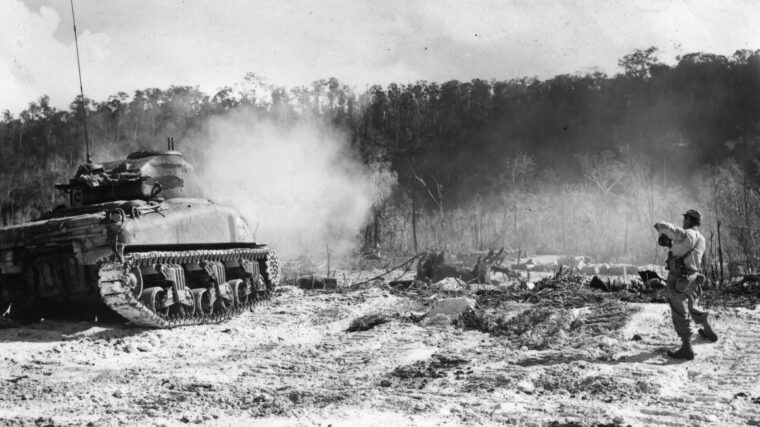
New Guinea Campaign
“All I knew about Biak was that it was an island a degree south of the equator, one of the Schouten group lying north of Geelvink Bay toward the western end of New Guinea.” Read more
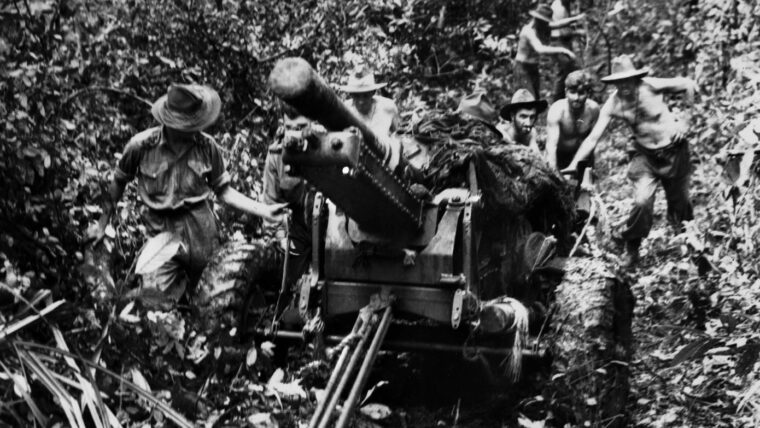
New Guinea Campaign
One blazing hot day in mid-January 1942, Cornelius “Con” Page, an Australian plantation manager and coastwatcher on Tabar Island 20 miles north of New Ireland reported on his radio a Japanese aircraft passing Tabar and heading for Rabaul on the Australian-administered island of New Britain. Read more
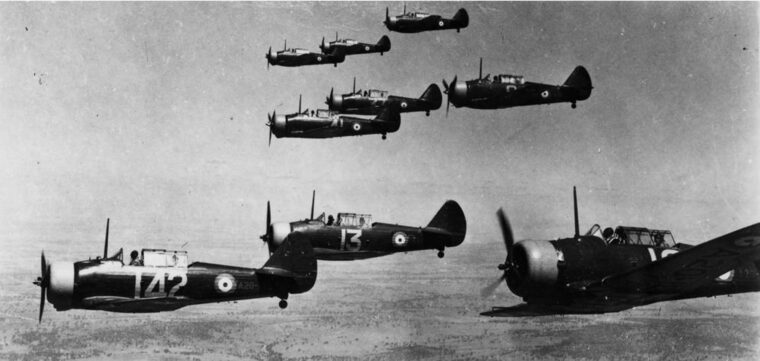
New Guinea Campaign
By the mid-1930s many people in Australia were concerned that if war came to Europe that Great Britain would not be able to come to their defense against a growing and aggressive Japanese Empire. Read more
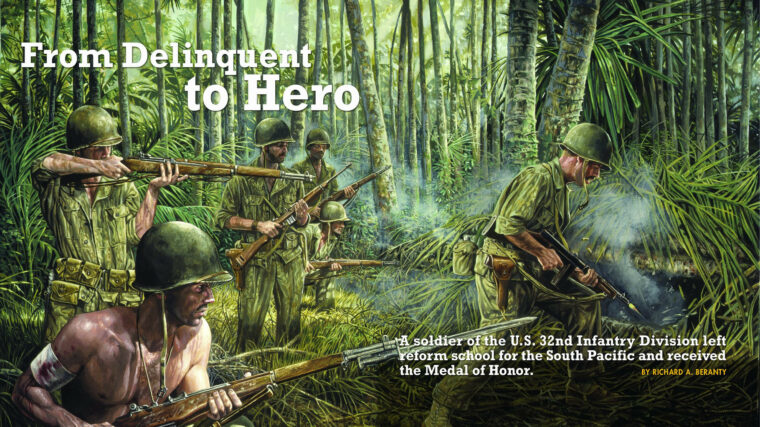
New Guinea Campaign
Donald R. Lobaugh was a juvenile delinquent, a kid sent to reform school when he was 16 years old. Read more
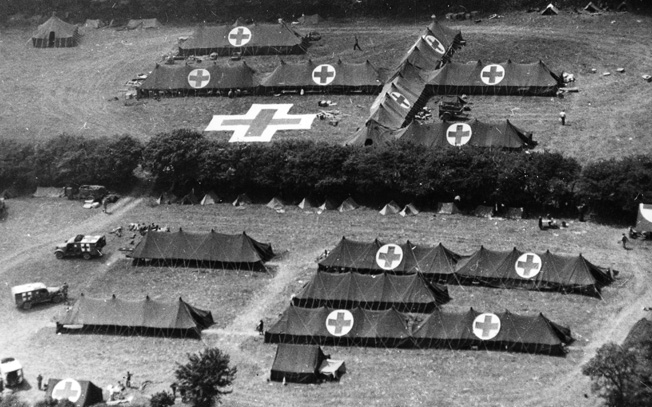
New Guinea Campaign
In October 1944, Army nurse Lieutenant Frances Slanger of the 45th Field Hospital somewhere in Europe wrote a letter to Stars and Stripes, the Army newspaper, to express her admiration of the American soldier. Read more
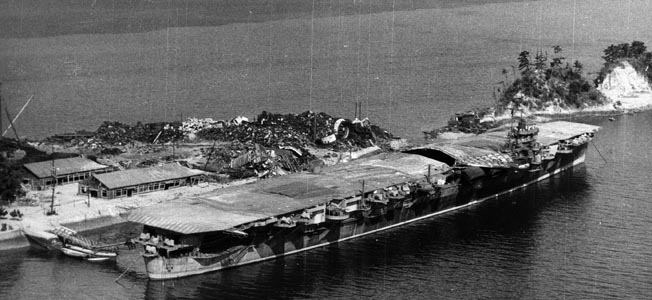
New Guinea Campaign
Japan lacked the industrial strength needed to wage a war against the United States. Yet, Japanese military planners seldom considered the limitations to their nation’s construction capabilities. Read more
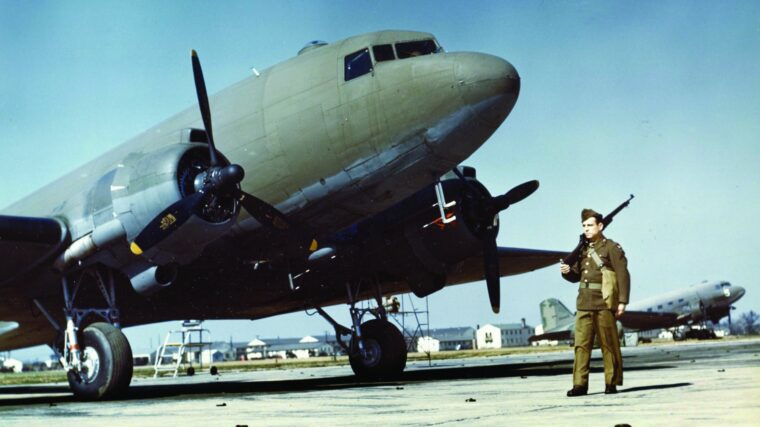
New Guinea Campaign
Even though, technically at least, it was not a combat airplane, the performance of the Douglas C-47 transport led General of the Army Dwight Eisenhower to label it as one of the most important weapons of World War II. Read more
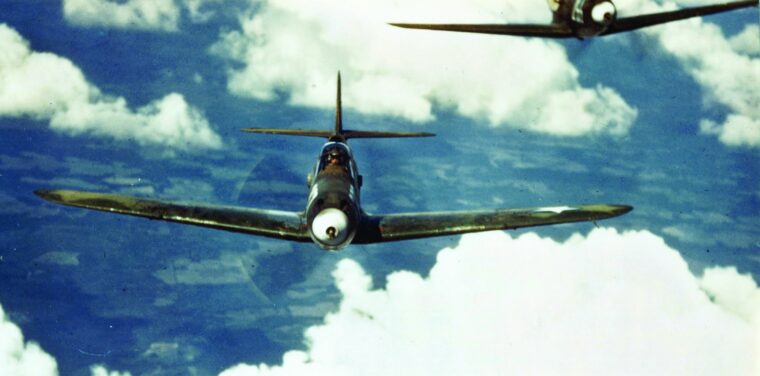
New Guinea Campaign
Common wisdom has long held that Japanese pilots and aircraft, particularly their fighters, were superior to the American, Australian, and British counterparts they faced in combat in the Philippines and Southeast Asia in the opening months of U.S. Read more